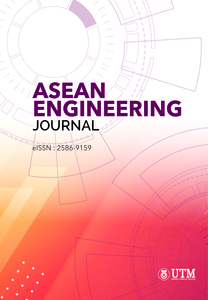TRAVEL BEHAVIOR OF COMMUTERS IN ASEAN COUNTRIES WITH THE LEAST CONFIRMED COVID-19 CASES DURING THE GLOBAL PANDEMIC − A CASE STUDY OF CAMBODIA AND LAOS
DOI:
https://doi.org/10.11113/aej.v11.16877Keywords:
Cambodia, Choice modeling, Laos, SARS-CoV-2, Travel patternsAbstract
Cambodia and Laos are two countries located in Southeast Asia. During the COVID-19 pandemic outbreak, people in these two countries are encouraged to work to sustain economic activities and therefore travel normally. A sound understanding of travel behavior in these two countries, however, has remained unknown during the global pandemic. This study explored the travel behavior of commuters for key destinations (i.e., workplace, market, and hospital) during the COVID-19 pandemic in Cambodia and Laos. The study used the primary dataset of 217 observations collected online from 29 March through 4 April 2020 using the simple random sampling technique. The multinomial logit model (MNL) was used for statistical data analysis. The results showed that males were more likely than females to go to work by motorcycle, followed by car and walking/cycling. Private/industry employees and state officials/public servants were likely to go to work, but academics/researchers, the self-employed, and the jobless/students were inclined not to travel. People living in cities had a higher preference to travel to work by car and motorcycle. People living in Laos were least likely to travel to the three key destinations by motorcycle and most likely to travel to the workplace and market by car, as compared to people living in Cambodia. Overall, the COVID-19 pandemic leads to changes in people's lifestyles as well as travel behavior. People preferred modes of private transport to public transport to obey social distancing, thereby avoiding getting infected with the virus. These solutions can simultaneously minimize the economic loss and slow down the spread of the COVID-19 disease.







